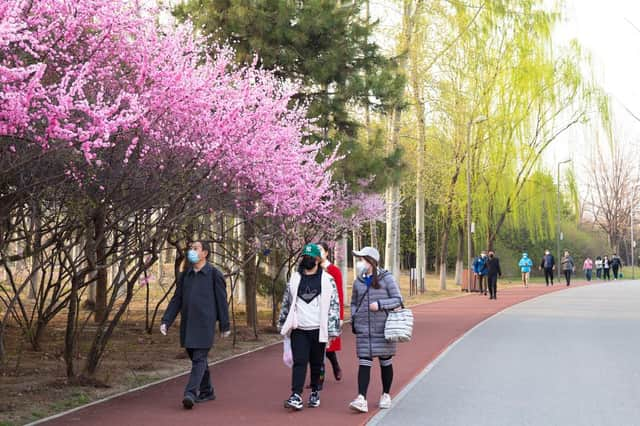Is Beijing having a second wave of coronavirus? Why China’s capital city has brought in lockdown measures as fresh cases emerge


Millions of people in Beijing are now living under restrictions once again thanks to a spike in new coronavirus infections.
Where have the new cases come from, and how many are there?
The first new cases of coronavirus were reported in the capital on Saturday, June 13, after two men who had visited the city's large Xinfadi wholesale market reported having symptoms of the virus.
Advertisement
Hide AdAdvertisement
Hide AdIt's believed that the cases are linked to the market, with the virus found in several places, including on chopping boards used to cut imported salmon.
45 people out of 517 who were tested at the market after these initial cases were found to have coronavirus, and lockdown measures were implemented on eleven nearby neighborhoods. Local officials also announced that 10,000 market staff would also be tested for the virus.
Case numbers have continued to rise day-on-day since then, with an additional 31 reported on Wednesday, June 17.
This brings the total to 137 cases since the first were reported last week.
How have authorities responded?
In response to reports that the virus may have come from imported salmon, some Beijing supermarkets pulled salmon products from their shelves, while imports of salmon have been temporarily halted. Experts, however, say it’s not yet clear how exactly the virus was transmitted.
Lockdown measures and testing capacity have also been expanded since the first new cases were discovered. As of June 17, at least 27 Beijing neighbourhoods have been classed as “medium” risk, with one near the market deemed “high risk”.
Anyone in either of these neighbourhoods is forbidden from leaving the city. Those from low-risk areas may leave, but have to test negative for the virus first.
Market workers from Beijing’s Xinfadi wholesale market, anyone who visited the market in the past two weeks and anyone who came into contact with either group will be tested for the virus. Anyone who was at the market in the past two weeks has been asked to self-isolate for 14 days.
Advertisement
Hide AdAdvertisement
Hide AdHowever, it’s been reported that people are having some difficulty accessing tests currently.
Travel has either been suspended or reduced, with over 1,200 flights cancelled to and from the city, and railway services on a limited schedule until early July.
School classes have been suspended, leisure centres closed, and sports teams barred from playing. Companies and factories, however, can currently still work.
Ride-sharing services and taxis have been banned from taking people out of Beijing.
Does this mean China will have a second wave?
Fears are now growing among officials that these new cases may spiral into a second wave of coronavirus in China, a country which had just begun to resume normal activities.
“The epidemic situation in the capital is extremely severe,” Beijing city spokesman Xu Hejian said at a press conference. “Right now we have to take strict measures to stop the spread of Covid-19.”
The fact that the virus appears to be linked to a large wholesale market is a source of concern, with more than 200,000 people reportedly having visited it since 30 May.
It’s too early to say yet whether cases will multiply and spread further across China, but it's hoped that a regime of mass-testing and swift implementation of new lockdown measures will stem the tide before it spirals out of control.
What does this mean for the UK?
Advertisement
Hide AdAdvertisement
Hide AdWith restrictions on travel now levied in Beijing, it’s unlikely that new cases will be imported to the UK from China. The UK also currently has a mandatory 14-day quarantine policy for anyone travelling into the country.
It is an indication, however, of the challenges that may lie ahead for the UK when it comes to preventing a second wave of coronavirus.